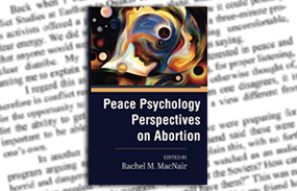
Limited research has focused on the mental health risks of late-term abortion. Several large scale studies have revealed that abortions after the 1st trimester (144,000 performed annually) pose more serious risks to women’s physical health than 1st trimester abortions [1,2]. The physical complication rate is 3%–6% at 12-13 weeks gestation and increases to 50% or higher as abortions are performed into the 2nd trimester [1]. However, relatively little is known about the increased mental health risks associated with late-term abortion. In an effort to provide relevant data, Coleman, Coyle & Rue analyzed online surveys completed by 374 women who experienced either a 1st trimester abortion or a 2nd or 3rd trimester abortion. Their findings were recently published in the Journal of Pregnancy [3]. Most respondents were U.S. citizens (81%), the majority of women sampled were unmarried at the time of the abortion (86%), and the women were generally well-educated, with nearly half having earned a bachelor’s or graduate degree. With regard to ethnicity, 85.4% were White, 3% were Black, and 5.7% were Hispanic. The average amount of time elapsed since the abortion was 15 years.
Alarmingly, 52% of the early abortion group and 67% of the late-term abortion group met DSM-IV criteria for Post-traumatic Stress Disorder symptoms (PTSD). Those who had an early abortion were compared to those who had a late-term abortion relative to PTSD after controlling for several demographic and personal history variables that discriminated between the two groups. Later abortions were associated with higher intrusion scores. Intrusion is characterized by persistent and unwanted re-experiencing of the traumatic event in the form of recurrent and distressing memories, flashbacks, and hyper-reactivity to any stimuli associated with the trauma. In addition, when compared to an early abortion, a later abortion was associated with a greater likelihood of reporting disturbing dreams, reliving of the abortion, and trouble falling asleep. Reporting the pregnancy was desired by one’s partner, experiencing pressure to abort, having left the partner prior to the abortion, not disclosing the abortion to the partner, and physical health concerns were more common among women who received later abortions. Social reasons for the abortion were linked with significantly higher PTSD total and subscale scores for the full sample.
Small percentages of the early and late-term abortion groups felt adequate information was provided on the physical and emotional risks, with only 14.8% of the early group and 9.8% of the late-term group noting satisfaction with the information provided. Counseling on alternatives was only deemed adequate by 17.4% of the early group and 13.7% of the late-term group.
The data clearly indicate that women who postpone their abortions may need more active professional intervention before securing an abortion based on the increased risks identified. More research with diverse samples employing additional measures of mental illness is needed.
[1] S. V. Gaufberg, "Abortion complications," 2008, http://emedicine.medscape.com/article/795001-overview, http://www.web-citation.org/5iLo2bOzc.
[2] L. A. Bartlett, C. J. Berg, H. B. Shulman et al., "Risk factors for legal induced abortion-related mortality in the United States," Obstetrics and Gynecology, vol. 103, no. 4, pp. 729–737, 2004.
[3] P.K. Coleman, C.T. Coyle, V.M. Rue. “Late-TermElective Abortion and Susceptibility to Posttraumatic Stress Symptoms.” Journal of Pregnancy, vol. 2010, article ID 130519, pp. 1-10. Available online: http://www.hindawi.com/journals/jp/2010/130519.html



.jpg)

.jpg)